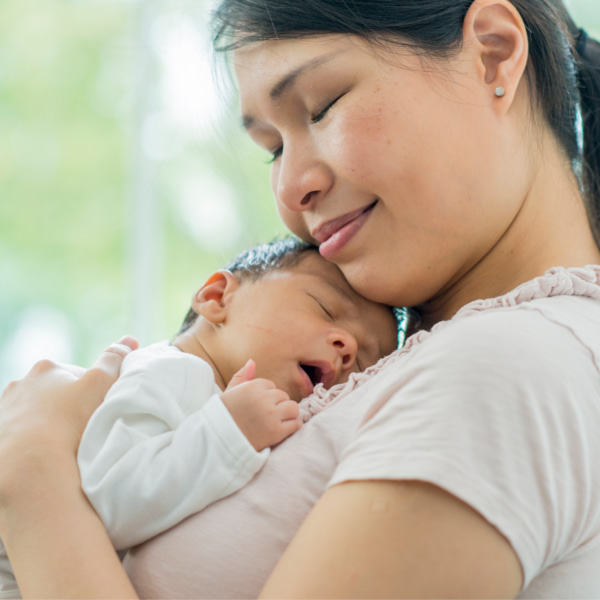Children usually start teething at around six months. This can be a stressful time, but all babies go through this and it will pass. Until it does, here are some tips to help.
When do children start teething?
Children generally start teething between 6 and 8 months, but it can start earlier or later than this. Children’s teeth start to develop before they’re born, and it’s not unusual for babies to be born with one or more teeth! On the other hand, some babies may not start teething until they’re one year old. There are no hard and fast rules – all babies are different.
What are the signs that my baby is teething?
You may spot the first signs of teething at around three months. These signs include:
- dribbling more than usual
- red cheeks
- sore red gums
- loss of appetite
- irritability
- disturbed sleep
- restlessness
- rubbing their ears
- a mild temperature
- increased biting and chewing on their toys – or you!
These signs usually start around 3-5 days before the tooth starts to appear.
Bear in mind that symptoms like a runny nose, high temperature, vomiting or diarrhoea aren’t usually signs of teething, so talk to your GP or call NHS 111 if your child is showing any of these symptoms.
How long does teething pain last?
Teething normally starts from 6 months and ends when the second molars come in at around 2 -3 years. Some babies sail through the teething phase and are showing off their first teeth before you know it. Some babies may be restless for a day or two until a tooth comes through. For others it can be an uncomfortable time, upsetting for both you and your baby. Some teeth may come in with little difficulty where others may cause irritation.
Top tips for helping with teething
Not surprisingly, teething can be painful. Sore gums can make babies grumpy, and may keep them awake at night. Here are some tips that can help to soothe them. Different things work for different babies, so try a few ideas to see what makes your wee one happier.
Tip #1: Gentle gum massage
Tip #1: Gentle gum massage
Tip #2: Cold teething ring
Tip #2: Cold teething ring
Tip #3: Deal with dribbling
Tip #3: Deal with dribbling
Tip #4: Cold food
Tip #4: Cold food
Tip #5: Weaning spoon
Tip #5: Weaning spoon
Tip #6: Cuddle time
Tip #6: Cuddle time
Tip #7: Distract them
Tip #7: Distract them
What about a teething gel?
New advice recommends that you shouldn’t use teething gels. If you’ve tried the tips above and nothing seems to help, please ask your health visitor or talk to your pharmacist.
My baby has stopped eating now they’re teething, should I be worried?
If this happens it’s best to discuss this with your health visitor or GP or call NHS 24 on 111, as teething shouldn’t make your baby stop eating. Make sure your baby always drinks enough milk or water to stay hydrated. Babies under 6 months should only have milk, and children under one should only have milk or water.
Should I stop breastfeeding when my child starts teething?
There’s no need to stop breastfeeding once your baby starts teething. When babies are attached to the breast the tongue covers the bottom gum so they can’t bite while they’re actively feeding. If your baby starts to bite, use your clean finger to break suction quickly, then give them a cuddle and offer them a cold teether.
How do I look after my child’s first teeth?

Image of a smiling toddler brushing their teeth.
It’s very important to look after your child’s first teeth. It’s a good idea to register them with a dentist as soon as their first tooth appears (or before, if you’re really organised). This is also the time to start brushing twice a day: last thing at night and at least once during the day – our toothbrushing tips can help if this doesn’t go down too well. Our page on looking after your child’s teeth has more advice. For more information on keeping your children’s teeth healthy, visit the Childsmile website.


